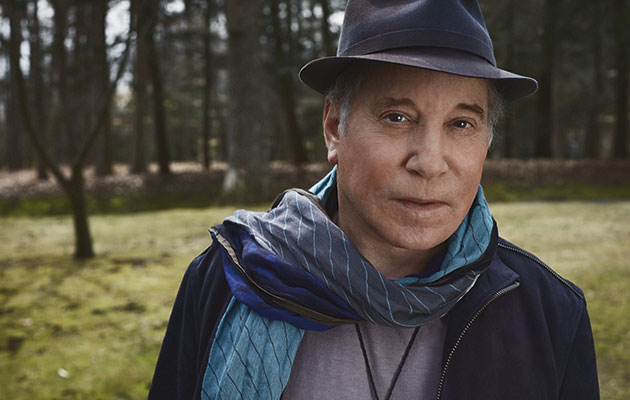Following the recent news that Paul Simon is to give a "farewell performance" in Hyde Park later this summer, it seemed an appropriate moment to post my interview with Simon from the July 2016 issue of Uncut. Incidentally, you can find more about Simon's Hyde Park concert by clicking here. Follow m...
You came to Britain in 1964. What were the stand-out qualities of the English folk scene?
Yeah, the English folk scene was as good as the American folk scene. Some of those players were really good and charismatic. We were on the same circuit, and we all lived around the same place. Around that time I was living around Belsize Park, so it wasn’t too far away from where Bert Jansch lived or John Renbourn. I knew Sandy Denny, Jackson Frank. Martin Carthy – I rented Martin’s flat in Belsize Park. £7 a week.
What was the circuit like at that time?
Mostly you played in some room above a pub, where they set up some chairs. Maybe they had a microphone with speakers, or maybe they didn’t then you sang without it. Or there were clubs. There was a club in Soho they called Les Cousins. That was my home club. I played there more than other places. When I went up north, I played in Widness and Warrington. It was around there, one of those railway stations, that “Homeward Bound” is about. You slept on a couch. Whoever ran the club let you sleep on their couch. You saved money. I used to get paid around that time maybe £15 a night, which was considered pretty good. Then right before Simon & Garfunkel hit, I got up to £20, £25 a night. At the time, the average working man’s salary was £37 and sixpence or something. £37 essentially. So here I was making maybe £75 – £80 a week as a kid.
What did you spend it on?
Nothing! Taxis instead of taking the tube. I moved out of Belsize Park into a flat that had a bathroom in it. But I never was as happy as when I was at Belsize Park. I didn’t spend it on anything because I didn’t need anything or want anything. “The Sound Of Silence” hit and all of sudden, we had made a million dollars. But to me, it was like, ‘I know you think £20 a night is a ridiculous amount of money but I’m actually good now and I’m worth it. So I don’t feel guilty at all!’ [laughs]
What do you remember about writing “The Sound Of Silence”?
I wrote it in the bathroom in my parent’s house because the room was tiled, so there was an echo. I used to turn the lights off and leave the water running. It was like white noise, you know? My brother says it was amazing that I wrote it, because everything I’d written before that was way below it in quality. It was step up. It was probably one of those things when you’re in some kind of serotonin/dopamine flow, and it just comes out. But I was too young to know that those things happened. So I just took it as, “That’s a good one, I could close my act with this one.”
It’s 50 years old this year. Do you get sentimental about anniversaries?
I don’t know, I don’t think about any of these as big anniversaries. I don’t celebrate them. I don’t have any significant emotional attachment to any of the anniversaries or any of it, other than a very warm feeling about when I lived here. A kind of nostalgia, but I’m not actually very prone to nostalgia. Certainly not about my own stuff. If I hear a record that I liked when I was a kid, and I hadn’t heard it in a long time, I could get that pleasure of nostalgia.
Can you still identify with the 21 year old Paul Simon who wrote “The Sound Of Silence”?
I remember who I was. I was just coming out of the phase where I was playing baseball for the schools that I was in. I was a good baseball player but I said, “Realistically, you’re never going to be a baseball player. You’re too small to be a baseball player. That’s over.” I know that I had a tremendous interest in making records as I did all those demos. I was an English Literature major in college, which I chose as my major because I had a crush on a girl who was an English major. I just liked playing music, I wanted to do that. I never envisioned that it would be a lifetimes worth of employment or that I would ever be having an interview like this, at this point.
Were you ambitious at all?
Yeah, I was. I wanted it. Also, I was competitive. I was competitive as an athlete. But there were no huge obstacles that I was facing other than I didn’t have a hit. But I wasn’t struggling. As a said, when I lived here I had tons of money for what I needed. When you’re a kid and you’re 21, 22 years old, unless something’s really gone wrong in your life, you’re pretty happy.



